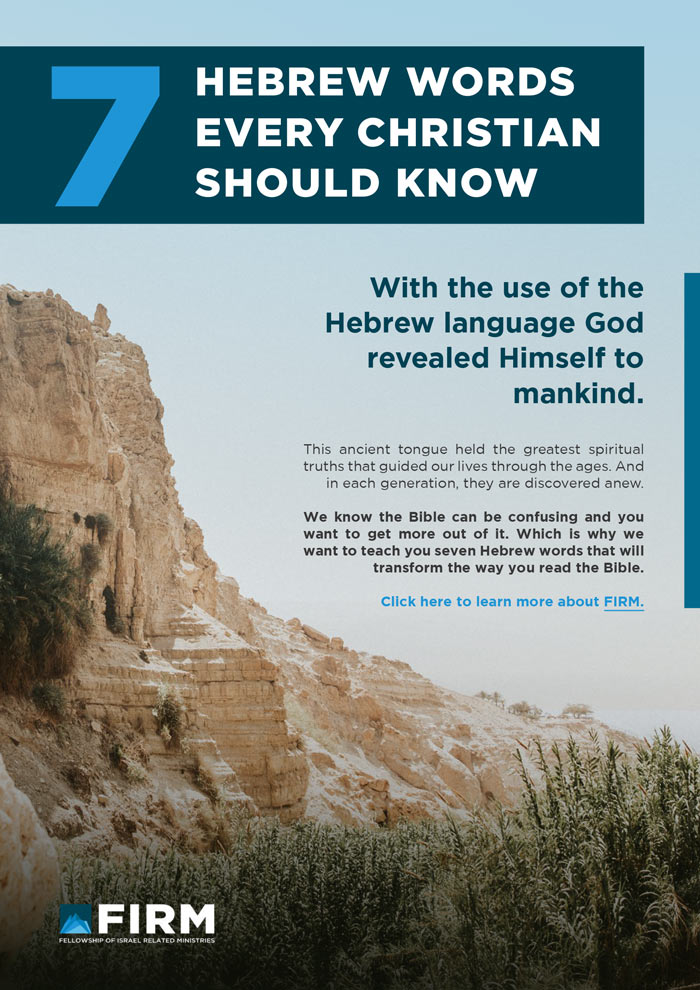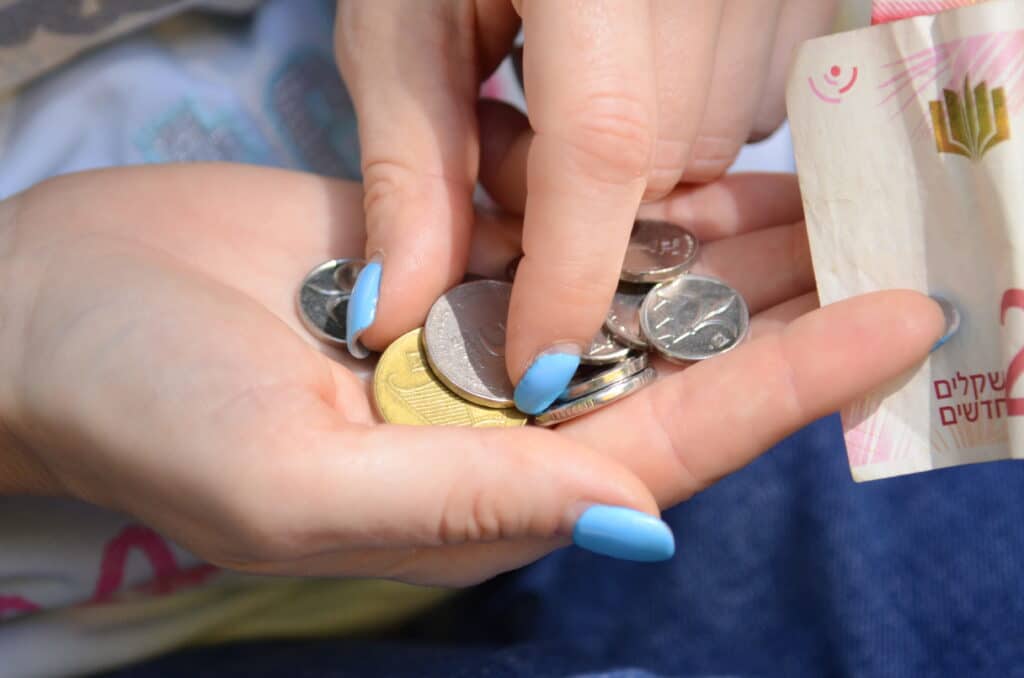What is the shekel?
From ancient biblical times to modern-day Israel, the shekel has been more than just a unit of currency; it is a link to ancient culture and biblical history. Derived from the Hebrew verb lishkol, meaning “to weigh” or “to consider,” the shekel’s journey through time reflects the evolution of faith, commerce, and national identity.
But what exactly is a shekel, and how has its meaning transformed over the millennia?
The history of the shekel is fascinating, carrying both spiritual significance and economic value. In biblical times, it wasn’t merely money—it was a standard of weight, often used to measure precious metal, playing a crucial role in establishing value and ensuring fair commerce and trade. Picture Abraham negotiating for a burial plot or the priests preparing offerings in the Tabernacle.
Today, one New Israeli Shekel (NIS) is worth about a quarter of a U.S. dollar—a far cry from the weighty silver coins of old, but still significant in the daily lives of Israelis. The New Israeli Shekel stands as a symbol of Israel’s economic resilience.
Biblical Roots: The Shekel in Scripture
To understand the shekel’s significance, we need to explore its biblical origins. The shekel’s roots stretch back to ancient times, with its concept established during the patriarchal era. In the Old Testament, the shekel appears frequently, not only as currency but also as a standard unit of weight.
The Shekel in Genesis
The shekel is first mentioned in Genesis 23, where Abraham purchases a burial plot for 400 shekels of silver:
“And Abraham weighed out for Ephron the silver which he had named in the hearing of the sons of Heth, four hundred shekels of silver, according to the weights current among the merchants.”
This transaction highlights the shekel’s role in significant financial dealings. The shekel’s weight wasn’t standardized; different regions used their own measurements, underscoring the crucial need for reliable weights.
The Shekel in the Torah
The shekel was particularly important in religious contexts, used to measure contributions to the Tabernacle and later the Temple. One notable mention is in Exodus 30:13, where the shekel’s role in religious life is evident as God instructs Moses on the collection of a half-shekel tax:
“This is what everyone among those who are numbered shall give: a half-shekel according to the shekel of the sanctuary (the shekel is twenty gerahs), a half-shekel as a contribution to the LORD.”
The Shekel in I Samuel
The shekel is mentioned in 1 Samuel 17:5, where Goliath’s armor is described. In this passage, we see tangible reference to the shekel’s use as a unit of measurement beyond currency.
“He had a bronze helmet on his head and wore a coat of scale armor of bronze weighing five thousand shekels.”
Additionally, it helps readers visualize the immense weight and formidability of Goliath’s armor, emphasizing the magnitude of David’s victory against the Philistine giant!
While the shekel’s biblical significance is profound, its journey didn’t end with ancient scripture. Journeying through centuries of history, we find the shekel reborn in the modern state of Israel, carrying both its ancient legacy and new symbolic weight.
The Modern Shekel: A Symbol of National Identity
Fast forward 3,000ish years, and the New Israeli Shekel was introduced in Israel in 1985, replacing the inflation-plagued “old” shekel (Israel’s currency between 1980 and 1985). The currency is divided into 100 agorot, with coins and banknotes featuring important figures and landmarks from Israeli history and culture. From the portrait of Maimonides on the 1-shekel coin to the image of Nobel laureate Shmuel Yosef Agnon on the 50-shekel note, each piece of currency tells a story of Israel’s heritage and achievements.
In contemporary Israel, the shekel is more than just a means of transaction; it symbolizes national identity and economic sovereignty. The Bank of Israel, the country’s central bank, carefully manages the shekel to maintain its stability and value. For tourists and locals alike, the shekel is a daily reminder of Israel’s unique position as a nation bridging ancient traditions and cutting-edge innovation.
The Value of a Shekel: Ancient and Modern
Understanding the value of a shekel bridges the gap between ancient texts and modern reality. In biblical times, the worth of a shekel varied depending on the era and context, yet it generally represented a significant sum. Scholars estimate that in ancient Israel, a shekel of silver might have been equivalent to a worker’s monthly wage.
Today, the New Israeli Shekel (NIS) holds its own on the global stage. Recent exchange rates include:
- 1 NIS ≈ 0.26 USD (United States Dollar)
- 1 NIS ≈ 0.22 EUR (Euro)
- 1 NIS ≈ 0.20 GBP (British Pound)
These figures, while fluctuating with global markets, give us a sense of the shekel’s place in the modern economic landscape. Although today’s NIS differs from the weighty silver coins of biblical times, it continues the ancient legacy of representing value and facilitating exchange.
Etymology: The Weight of Words
The legacy of the shekel extends beyond its monetary value. The Hebrew root of “shekel”—*shakal*—means “to weigh” or “to consider.” This isn’t just a linguistic detail; it offers a profound insight into how God views our lives and actions.
Scripture frequently references this concept of divine weighing. In Job 34:23, we are reminded that God doesn’t need to “consider a man further” before judgment—His evaluation is complete and perfect.
Proverbs 16:2 contrasts our self-perception with God’s assessment:
“All a person’s ways seem pure to them, but motives are weighed by the Lord.”
This portrayal of God as the ultimate “weigher” of our hearts and actions challenges us to look beyond surface-level spirituality. Just as ancient merchants used precise scales to ensure fair trades, we are called to examine our lives with careful consideration.
The Depth of ‘Lishkol’: To Weigh, To Consider
Building on this concept, the Hebrew verb lishkol (לשקול), meaning “to weigh” or “to consider,” appears in several significant biblical passages, each offering a nuanced perspective on divine judgment and human responsibility.
Returning to Job 34:23, we find a key statement about God’s omniscience: “For He does not need to consider a man further, that he should go before God in judgment.”
This verse reminds us that God’s understanding is complete and perfect. Unlike human judges, who must carefully weigh evidence and testimony, God’s judgment is instantaneous and all-encompassing. This is a humbling reminder of our limited perspective compared to divine wisdom.
Again, Proverbs 16:2 reinforces this idea: “All a man’s ways are pure in his own eyes, but the Lord weighs the motives.”
Here, lishkol contrasts our often-biased self-perception with God’s impartial evaluation. It’s easy to justify our actions or consider ourselves righteous. However, this proverb reminds us that God sees beyond our outward behavior to the very core of our being. He sees our spirit, motivation, and true character.
Weighing, Considering, and Smoothing
Finally, Isaiah 26:7 presents a beautiful image of divine guidance: “The way of the righteous is straight. Upright One, You smooth the path of the righteous.”
In this passage, the concept of weighing or considering is connected to making a path straight or level. This suggests that God, in His wisdom and care, smooths the way for those who seek to live righteously. This doesn’t promise a life free from challenges, but rather a life guided by divine wisdom and aligned with God’s purposes.
As we unpack the rich meanings behind lishkol, we’re confronted with a challenging question: How does this ancient concept of “weighing” apply to our lives today? In essence, how can we develop a “currency of character” that reflects these timeless values?
A Currency of Character
What does this mean for us, far removed from ancient marketplaces and temple treasuries? The shekel’s dual nature lives as both currency and concept. This invites us to reflect on how we “weigh” things in our own lives.
In our financial dealings, are we guided by integrity and fairness? Do we tip the scales in our favor when no one’s looking? When we evaluate others (or ourselves), do we take the time to consider deeply? Do we jump to hasty judgments? When we speak, do we weigh our words?
In a world obsessed with quick judgments and instant gratification, the shekel reminds us to slow down and weigh matters carefully. Whether it’s a major life decision, a moral dilemma, or simply how we treat the busy barista at our local coffee shop, we’re called to bring godly consideration to every interaction. This idea of weighing our actions and developing character isn’t just a practical life skill. It’s deeply rooted in spiritual truth.
The Spiritual Connection: Shekel and Lishkol
The profound link between the shekel as a physical currency and lishkol as a spiritual concept offers us a powerful metaphor for living. A shekel was carefully weighed to ensure its value in ancient times. So too, we are called to “weigh” our thoughts, words, and actions in the balance of God’s truth.
This connection invites us to approach life with a spirit of thoughtful consideration. Our world often values quick decisions and snap judgments. So, the concept of lishkol encourages us to pause, reflect, and seek wisdom before acting. It’s about developing a habit of spiritual discernment, where we carefully consider our choices in light of God’s word and will.
Moreover, the idea of God “weighing” our spirits (Proverbs 16:2) should inspire both awe and comfort. Awe, because we serve a God who sees and understands the deepest parts of our being. Comfort, because this same God, who knows us completely also extends grace and guidance as we strive to align our lives with His divine standard.
From ancient coinage to modern economics, from linguistic roots to spiritual truths, the shekel’s journey through history offers us more than just an interesting historical footnote. It provides a unique lens through which we can view our own lives and choices.
A Legacy of Wisdom
The next time you hear about exchange rates or flip through your wallet, let it be a prompt. It can be a reminder to consider your financial health. Moreso to reflect on the weight of your words, your actions, and the currency of your character in God’s economy.
In the end, the true worth of our lives isn’t measured in shekels, dollars, or any earthly currency. It’s weighed on the perfect scales of a loving, all-knowing God. And that’s a transaction that always tips in our favor, thanks to the immeasurable gift of grace.
We carry this ancient wisdom into our modern lives. May we be inspired to live with intention, integrity, and a deep awareness of God’s presence. Let the shekel—both the coin in your pocket and the concept in our heart—serve as a reminder. Let’s weigh choices carefully, consider others compassionately, and align our lives with the values of God’s kingdom.

7 Hebrew Words Every Christian Should Know: Free PDF Download
With the use of the Hebrew language God revealed Himself to mankind. This ancient tongue held the greatest spiritual truths that guided our lives through the ages. And in each generation, they are discovered anew.
We know the Bible can be hard to understand and you want to get more out of it. Which is why we want to teach you seven Hebrew words that will transform the way you read the Bible.
Articles Related What is the Shekel? The Hebrew Word for “To Weigh”
Estimated reading time: 0 minutes


